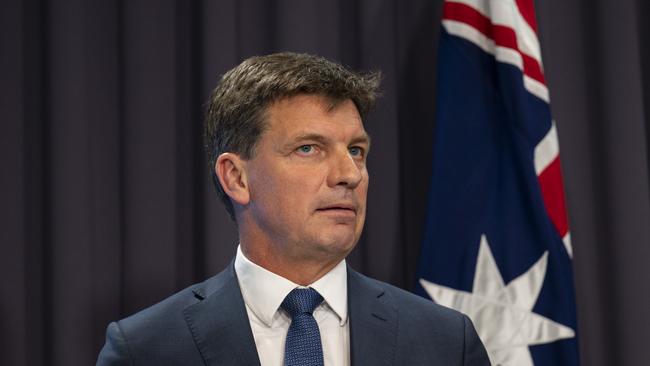‘No downside’ if hydrogen exports take off
Australia would maintain a competitive edge as a hydrogen exporter to Germany because shipping would represent only a small component of total supply chain costs, a study finds.

Australia would maintain a competitive edge as a hydrogen exporter to Germany because shipping would represent only a small component of total supply chain costs, according to a feasibility study prepared by both nations.
The working paper and modelling was conducted by the University of NSW and received input from a consortia which included Deloitte, the Australian Renewable Energy Agency, the CSIRO, the Australian Hydrogen Council, Fortescue, the ANU and others.
The study was backed with nearly $600,000 from the Morrison government, with Energy Minister Angus Taylor saying it provided a pathway to establishing a hydrogen supply chain with Germany potentially worth billions of dollars in exports and investment in the regions.
The 100-page report examines the costs of production and hydrogen-based energy carriers, suggesting one of the early options for Australia would be to ship hydrogen in the form of ammonia.
It argues a hydrogen export industry would lead to new opportunities, including the chance for the nation to supply “hydrogen-based commodities such as green steel, refined/green aluminium and reduced iron ore”.
“This will require close co-operation with technology providers including German partners and provide suitable commercial development opportunities for all parties. This might involve special economic zones and suitable incentives for co-development of projects,” the report says.
Collaboration between Australia and Germany would also provide the chance for both nations to “partner up to build up a hydrogen manufacturing base and co-develop projects in Australia aimed at supplying the Asian-Pacific market”.
Mr Taylor talked up the government’s decision to funnel $464m towards the development of hydrogen hubs across the nation, arguing they would help keep power prices down and allow Germany to meet its future energy needs. The government has identified seven priority hub regions – Bell Bay in Tasmania, the Pilbara in WA, Gladstone in Queensland, the La Trobe Valley in Victoria, the Eyre Peninsula in SA, the Hunter Valley in NSW, and Darwin.
Trade and Investment Minister Dan Tehan said hydrogen collaboration between Germany and Australia would create jobs and “drive down emissions far more effectively than protectionism and taxes”.
The study comes after former chief scientist Alan Finkel said clean hydrogen presented opportunities for Australia “almost beyond imagining”.




To join the conversation, please log in. Don't have an account? Register
Join the conversation, you are commenting as Logout